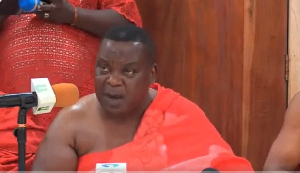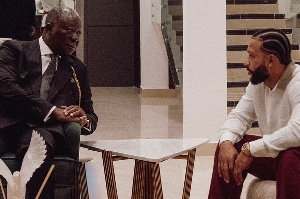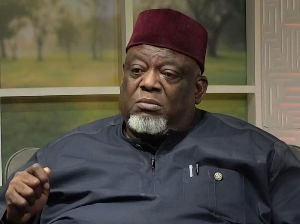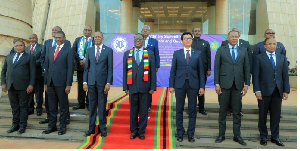


Ishmael Mensah Blog of Thursday, 2 January 2025
Source: Ishmael Mensah
French troops are to withdraw from the West African nation of Ivory Coast.
The former colonial power's military sway in the region would be further diminished with the announcement by Ivory Coast that French troops will leave the West African country.
Alassane Ouattara, the president of Ivory Coast, stated in a year-end speech that the action was a reflection of the nation's military's modernization.
Separately, Senegal affirmed the evacuation will be finished by the end of 2025, after announcing last month that France would have to abandon its military sites on its territory.
The largest remaining French military force in West Africa is based in Ivory Coast.
There are about 600 French soldiers in the nation, 350 of them are in Senegal.
President Ouattara declared, "We have made a deliberate decision to remove French forces from the Ivory Coast."
He went on to say that Ivorian troops will take over the French army's infantry battalion in Port Bouét.
Following military takeovers in Mali, Burkina Faso, and Niger as well as rising anti-French sentiment, France, whose colonial control in West Africa ended in the 1960s, has already withdrawn its troops from those nations.
In November, the government of Chad, a crucial Western partner in the conflict with Islamic terrorists in the region, abruptly terminated its defense cooperation agreement with France.
Senegalese President Bassirou Dioumaye Faye said: "I have instructed the minister for the armed forces to propose a new doctrine for co-operation in defence and security, involving, among other consequences, the end of all foreign military presences in Senegal from 2025."
On a platform of restoring sovereignty and reducing reliance on other nations, Faye was elected in March.
In Gabon, France will continue to have a minor presence.
Following the expulsion of French forces from their nations, the military chiefs of Niger, Mali, and Burkina Faso have shifted their ties to Russia.
In order to assist them in fending off jihadist terrorists, Russia then sent mercenaries throughout the Sahel.
It appears that France now has less than 2,000 troops in Gabon and Djibouti.
According to political observers, France has been working to regain its declining military and political might in Africa.
In order to drastically cut down on its permanent personnel presence on the continent, the former political power now seems to be developing a new military policy of downscaling military ties.
Ivory Coast, also called Côte d'Ivoire in French, was renowned for its well-developed economy and religious and ethnic harmony for more than thirty years after gaining independence from France.
The nation in Western Africa was praised as a stable example. However, the country was split in two by an armed uprising in 2002. As the nation gradually made its way toward a political settlement of the conflict, peace agreements were interspersed by new acts of bloodshed.
Notwithstanding the unrest, Ivory Coast remains the world's top exporter of cocoa beans, and its people earn a comparatively good standard of living in comparison to other nations in the region.
Source: BBC


















